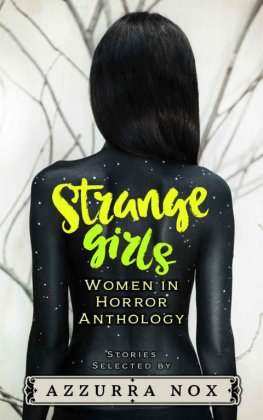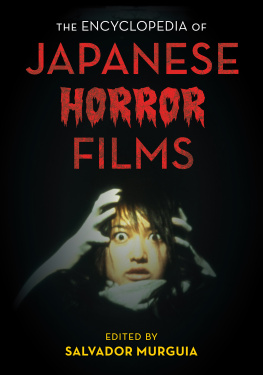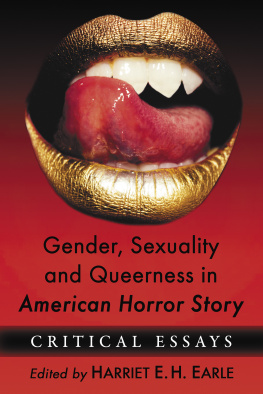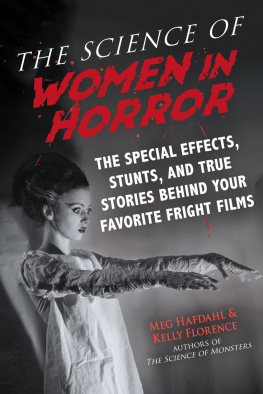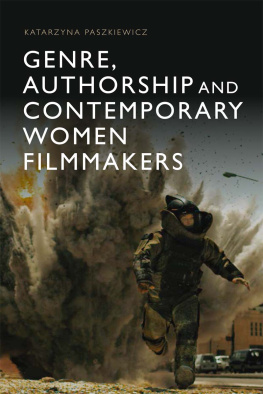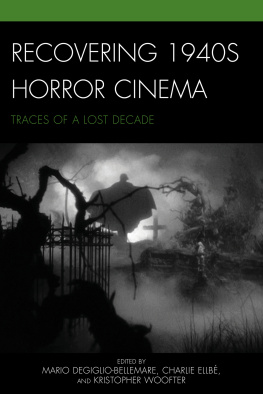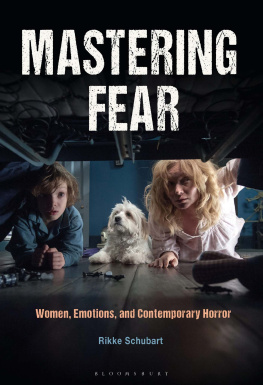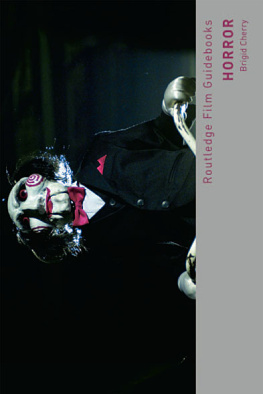Victoria McCollum is a researcher and educator in cinematic arts at Ulster University, Northern Ireland. Victoria has published several cutting-edge books on film, media, and TV, including the recent Make America Hate Again: Trump-Era Horror and the Politics of Fear (2019). She is co-investigator on a Higher Education Research Capital project that will deliver 536,000 investment in a new Virtual Production Facility at Ulster University, addressing genuine industry need in four key strands of film, animation, immersive, and games. Victoria has previously held positions at BBC, ITV, MTV, and HBO (Time Warner Inc.) and has collaborated on projects with Apple, Cartoon Network, Cinemax, Face-book, New Line Cinema, Sesame Street, Telltale Games, Time Warner, Twitter, and Universal Music Group.
Aislnn Clarke is an award-winning writer and director. Her debut feature film, The Devils Doorway (2018), was released internationally by IFC Midnight following a run at international genre film festivals (Sitges, Fright Fest, etc.). Along with a number of awards on the festival circuit, Aislnn was awarded the Academy of Motion Pictures Gold Fellowship in 2020. Aislnn currently has original TV work in development with major broadcasters in the UK, Ireland, and the United States. She also has feature film work in development with Disney and Hulu in Los Angeles and with the BFI, Northern Ireland Screen, and Screen Ireland closer to home. Aislnn lectures in creative writing and film at Queens University and is repped by CAA in LA and Dench Arnold in London.
* * *
Erica Tortolani is an award-winning doctoral researcher in film studies at the University of Massachusetts, Amherst. Her research interests include silent cinema, horror films, German Expressionist film, and avant-garde and experimental film.
Alexandra Heller-Nicholas is an Australian film critic and academic who has written eight books on cult and horror film with a focus on gender politics, including Rape-Revenge Films (2011) and the forthcoming 1000 Women in Horror. Alexandra is an adjunct professor in film and television at Deakin University and a programmer at Fantastic Fest in Austin, Texas, the largest genre film festival in the US.
James Francis Jr. conducts doctoral research focused on horror narratives and childrens literature. His book Remaking Horror: Hollywoods New Reliance on Scares of Old (2013) examines the American horror film remake. James is currently a professor in English at Middle Tennessee State University.
Shelby Shukaliak is a Vancouver-based film producer and graduate of the University of British Columbias Media Studies program. Shelby is a key collaborator on UBCs recent research project Queen Bee: Women, Feminism and Genre Film (2019).
Eve ODea is a graduate of the Film Studies program of the University of British Columbia. Eva is a key collaborator on UBCs recent research project Queen Bee: Women, Feminism and Genre Film (2019).
Ernest Mathijs is professor of film studies at the University of British Columbia. He has published on horror and cult cinema, including Ginger Snaps (2013) and The Cinema of David Cronenberg (2008).
Amy Harris is a doctoral researcher in the Cinema and Television History Institute at De Montfort University. She supports teaching on an Introduction to Global Film History module and works as an archiving and digitization intern in the Institute of Cinema and Television History Hammer horror archives.
Ashlee Blackwell is a Philadelphia native and Temple University graduate with an MA in liberal arts. She is the creator of Graveyard Shift Sisters, a digital resource that archives Black women in the horror/sci-fi genres. Shes also the cowriter/producer of the Shudder documentary Horror Noire: A History of Black Horror.
Kate R. Robertson is an Australian-born, New Yorkbased writer and academic affiliate of the University of Sydney, where she taught for several years. She has written about art, film, and culture for a range of publications. Her current project, Man-Eater: Cannibal Women in Contemporary Visual Culture, presented at the Art Association of Australia and New Zealand (2013) and the Miskatonic Institute of Horror Studies (2020), explores ever-present social anxieties about the tense and endlessly complicated relationship between gender, hunger, desire, sex, autonomy, and power.
Anna Bogutskaya is a film programmer, podcaster, creative producer, and writer. Previously, she worked at Pedro Almodvars El Deseo, ran Shooting People, and programmed for BFI. She is currently the head of arts and culture at DICE, cohost of The Bigger Picture podcast, festival director of BAFTA-recognized Underwire Film Festival, and cofounder of horror film collective The Final Girls.
Brian Hauser is a horror films scholar, screenwriter, filmmaker, and novelist. He was coeditor of The Journal of Short Film from 2009 to 2016. His debut novel, Memento Mori: The Fathomless Shadows (2019), is about a fictional woman director of underground short horror films in the late 1970s.
Dan Vena is a SSHRC Postdoctoral Fellow at Carleton University and an adjunct instructor at Queens University specializing in trans, queer, and feminist approaches to horror cinema and superhero comics. Dan has published in Transformative Works and Culture, Studies in the Fantastic, and several anthologies on gender, sexuality, and genre.
Iris Robinson recently completed her MA in cinema studies at the University of Toronto. Her research navigates the domestic, medical, and urban spaces in visual culture using feminist theory, photography, and urban studies with a particular interest in horror, documentary, and the evolution of madness on screen.
Patrick Woodstock is currently completing his MA in film studies at Concordia University in Montral. His research focuses on the application of queer and feminist perspectives toward contemporary and historical popular visual cultures, with a specific interest in classical Hollywood, horror media, and the aesthetics of camp and decadence.
To the contributorsa collection like this results only from the contributions of many talented people. Thank you. Your commitment, enthusiasm, and expertise are what made this book possible. Thanks so very much to my coeditor, Aislnn. Working with you has been an honor every step of the way, and youve taught me so much in the process. I am also deeply grateful to Brian for his unwavering support. Kate, Dawn, and Trish, thank you for your patience and understanding.
Heres offering my sincere, heartfelt thanks to my partner for her strength of character and courage of conviction. I am deeply grateful to my folks for their belief in me. I would like to offer my special thanks to Giuliana for her insightful comments and suggestions. Without Giulianas tremendous understanding and encouragement in the past few years, it would be impossible for me to complete most of my books.
For Bella, a queen among dogs, my muse, and the best friend I could have ever wished for.
Victoria
Firstly, to my coeditor, Victoria: thank you for inviting me to collaborate with you and for being such a trusty guide across the bridge from industry to academy. It has been a privilege, an education, and a lot of fun.
To the contributors and the contributors we lost along the way: thank you for your push, resolve, and patience. And to the publishing team at Lehigh, thank you for your patience, resolve, and push.
I would also like to acknowledge the extraordinarily important work of those who set up and championed Women in Horror film festivalsparticularly International Women in Horror Film Festival, Final Girls Berlin, and Axwound Film Festival, who have done so much for me. I have been privileged to meet and work with so many brilliant women through the Women in Horror community, and I will treasure those connections. I hope some of your experience is represented here. With special thanks to Sonia Lupher and Colleen OHolleran.


